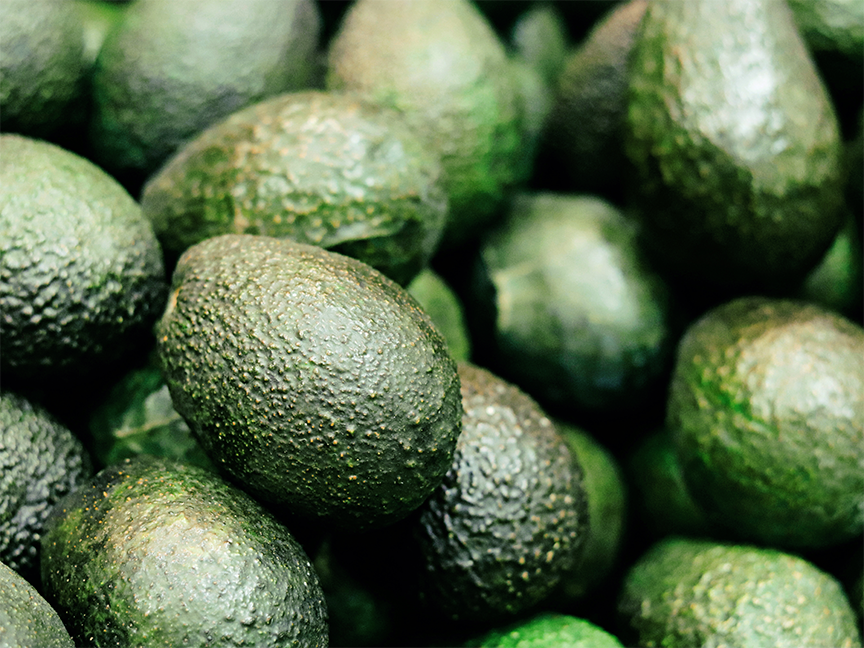
Visit Our Sponsors |
|
|
|
|
|
|
|
|
|
|
|
|
|
|
|
|
|
|
|
|
|
|
|
|
|
|
|
|
|
|
|
|
|
|
|
|
|
|
|
|

The great avocado affair of 2022 began with a little-noticed weekend press release from Mexico’s Agriculture and Rural Development Ministry. The U.S. was shutting down imports of avocados from Mexico’s top producing region because one of its inspectors received a threatening phone call.
Details are hard to come by — who made the threat? what was the threat? — but what’s known is this: Mexican President Andres Manuel Lopez Obrador has not taken kindly to the U.S. action. In a Monday morning press conference, he said Mexican authorities would look into the allegations but also made clear he believes there’s something fishy about the incident. There are political and economic interests, Lopez Obrador said, who want to keep the Mexican avocados out of the U.S. market.
One group that wants the avocados to keep flowing north: U.S. consumers, who now eat more guacamole than ever. It’s only a matter of time before the import halt will squeeze supplies, as Mexico accounts for 80% of the U.S. market, and drive up the price on yet another product in an economy grappling with its worst inflation surge in four decades.
“We could see a significant reduction in availability” of avocados in the U.S. and higher prices as a result, said David Magana, senior analyst for Rabobank International in Fresno, California.
The ban on avocados from Michoacán, a coastal state just west of Mexico City, went into effect on Feb. 11, a day before Mexico issued its statement. The U.S. Department of Agriculture confirmed its actions on Monday. Neither side would answer questions on the nature of the alleged threat, but Michoacán has been riddled by violence since drug cartels took over large swathes of the state years ago.
Read more: Unilever Company Susses Out the Murky Sourcing of Avocados
Avocados are already the most expensive for this time of year in government data going back two decades due to the labor shortfalls, higher production costs and wage hikes that have plagued the broader economy. It’s one of the many products that’s helping to push global food prices closer to a record high.
At the same time, demand for the fruit is booming. Per-capita consumption doubled in the 10 years through 2020 to 9 pounds, and could surpass 11 pounds by 2026, Magana said, citing industry projections.
Mission Produce, the biggest distributor of avocados in the U.S., said in a statement that the company is doing what it can to “mitigate the impact as much as possible,” including trying to source for additional product around the world. However, there may be limits. There isn’t enough global supply to make up for an inability to ship Mexican avocados into the U.S., especially on a nearer-term time horizon, JPMorgan Chase & Co. analysts said in a report.
Francesco Brachetti, co-founder of Avocaderia, an avocado bar in New York City, said it’ll be a couple of weeks before consumers see impacts because there’s a lag between when fruit ships and when it’s sold in the U.S. Disruptions to the avocado supply chain usually don’t last longer than a few days or at most a week or two, but this time could be different, he said.
“The last couple of years have been unique, so we’ll take it with caution and wait for this situation to evolve,” Brachetti said.
Avocado supplier Eco Farms in California is seeing an uptick in inquiries from wholesale clients worried about securing extra product in light of the ban, according to the company’s president Steve Taft. Taft said he could foresee raising prices by as much as 25% depending on how long the ban goes on.
Michoacán is “the big bully on the block. They dictate the market, so we have to be careful not to get carried away,” he said.
RELATED CONTENT
RELATED VIDEOS
Timely, incisive articles delivered directly to your inbox.

